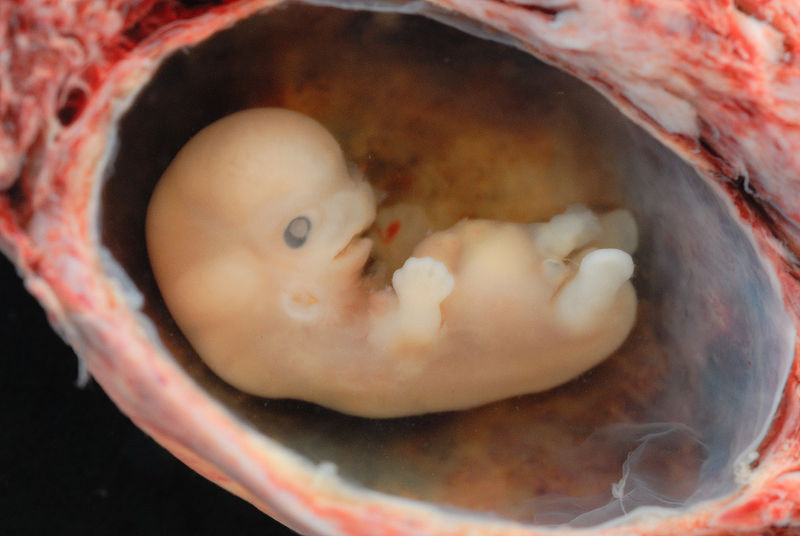To answer this, the Me'or Eynayim looks to a famous passage from the Talmud that says that we learned the entire Torah in the womb, only to have it slapped out of us in the moment before we were born:
A light burns above the head of an embryo in the womb and it looks and sees from one end of the world to the other… There is no time in which a person enjoys greater happiness than in those days, for it is said, “O that I were as in months gone by, in the days when God watched over me” (Job 29:2).… The embryo is taught all the Torah from beginning to end… As soon as it sees the light, an angel approaches, slaps it on its mouth and causes it to forget all the Torah completely. (Babylonian Talmud, Niddah 30b)
The Me'or Eynayim observes from this passage that we had the merit to learn the Torah while we were in the womb because, at that time, we were a proper dwelling-place for God, pure and perfect. As we were exposed to the world beyond the womb, though, we had to forget. The angel who slapped us on the lips anticipated the reality of this world. Purity is not so easily achieved in a world of shadows and uncertainty.
Why did God bother to make the world this way? Why make us with the purity needed to be a vessel for Torah only to take it away from us? Me'or Eynayim answers that it was so we would have the free will to learn Torah painstakingly for ourselves. It was so that we could choose to heed the Torah and earn reward, or ignore the Torah and deserve punishment. Torah cannot work in this world if it is just planted in our brains to direct us like an automaton. We have to choose—and choosing contains the possibility of failing.
But, in this case, failure is not all bad. Failure offers with it the possibility of repentance, t'shuvah. We do t'shuvah to bring God and Torah back into us, just as it was when we were in the womb. Ironically, we can be even better here than we were in the womb—better in this world of imperfection because here we get to choose Torah.
We are, like the Mishkan, created to be dwelling places for God. However, being a God-vessel is not easy and it is not automatic for beings that have to contend with the realities of this world. We have to work for it. We have to strive for it. We have to fail and apologize and forgive ourselves over and over again.
Yet, we do have within ourselves a memory of a time when God and Torah were as easy for us as receiving breath and sustenance through the umbilical cord. We can vaguely recollect the time when God was right there with us, hovering over the Mishkah, a light over our heads, so that we can remember what it is we are striving and struggling to remember.
When we make our souls into a dwelling place for God, we are actually choosing the choice that was once all we knew.
Other Posts on This Topic:
You are What You Choose to Be
Pekudei: A Love Letter


 RSS Feed
RSS Feed
